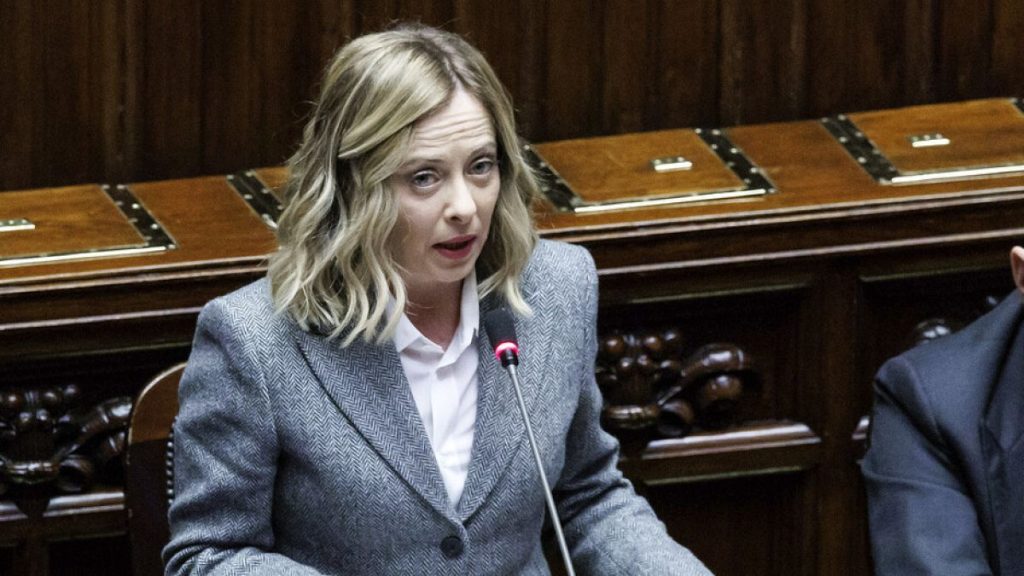Giorgia Meloni, Italy’s Prime Minister, advocates for a pragmatic EU approach towards the incoming Trump administration, aiming to avert a potential transatlantic trade war. Trump’s campaign promises of imposing tariffs on imports from all countries except China (which faces a potential 60% tariff) have put the EU on high alert. Meloni’s seemingly amicable relationship with Trump, evidenced by public appearances and mutual praise, positions her as a potential key liaison between the US and the EU, especially considering the political uncertainties within Germany and France. Meloni underscores the importance of finding common ground and fostering cooperation between the two entities, emphasizing the detrimental impact a trade war would have on both sides. She urged a focus on areas of potential synergy rather than engaging in unproductive commercial disputes.
The historical context of trade relations between the US and the EU under Trump’s previous presidency reveals underlying tensions. Trump’s characterization of the EU as a “foe” stemmed from his belief that Europe wasn’t reciprocating adequately in trade, particularly in the automotive sector. Despite these accusations, data indicates a significant trade surplus in favor of the EU, with exports to the US amounting to a substantial portion of the bloc’s total exports. This imbalance, along with Trump’s “America First” rhetoric, laid the groundwork for potential trade conflicts. The EU, while prepared to respond to any protectionist measures initiated by the Trump administration, remains cautious about revealing its specific counter-strategies.
Meloni’s approach to the potential trade challenges differs from a purely defensive stance. Instead of solely reacting to US actions, she proposes a proactive focus on strengthening the EU’s internal framework, echoing a sentiment reminiscent of John F. Kennedy’s famous call to action. Meloni believes the EU should prioritize bolstering its competitiveness and addressing tariff-related issues internally, thus positioning itself more robustly in any trade negotiations. This proactive strategy, according to Meloni, will better equip the EU to navigate the complexities of transatlantic trade relations under the new Trump administration.
The burgeoning relationship between Meloni and Trump adds an intriguing layer to this complex geopolitical scenario. Their recent interactions, including a dinner at a high-profile event, suggest a level of rapport that could prove crucial in mitigating potential trade tensions. Trump’s positive remarks about Meloni as a “fantastic leader” and his stated willingness to collaborate with her, coupled with Meloni’s public acknowledgment of his compliments, point towards a potentially productive channel of communication between the two leaders. This dynamic could potentially offer a backchannel for dialogue and negotiation, smoothing the path for more constructive trade discussions between the US and the EU.
However, despite the apparent amity between Meloni and Trump, the underlying trade issues remain substantial. Trump’s protectionist inclinations, coupled with his previous rhetoric against the EU, suggest a challenging road ahead for establishing stable and mutually beneficial trade relations. The EU’s readiness to respond to any protectionist measures, although unspecified, indicates a preparedness to engage in a trade conflict if necessary. This underlying tension highlights the delicate balance Meloni must strike, navigating between fostering a positive relationship with Trump and safeguarding the EU’s trade interests.
In conclusion, the EU faces a complex challenge in navigating trade relations with the returning Trump administration. While Meloni’s pragmatic approach and her potentially influential relationship with Trump offer a glimmer of hope for averting a trade war, the underlying issues and Trump’s unpredictable nature remain significant obstacles. The EU’s readiness to retaliate against protectionist measures, combined with Meloni’s focus on internal strengthening, suggests a multifaceted strategy to safeguard European interests. The coming months will be crucial in determining whether cooperation or conflict will define the transatlantic trade landscape. Meloni’s ability to leverage her relationship with Trump while maintaining a firm stance on EU trade interests will be paramount in shaping this outcome.














